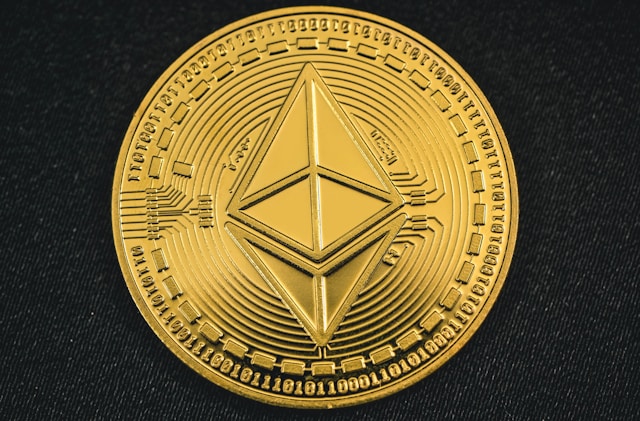The Vehicle Identification Number (VIN) is a unique data for tracking, registering, and verifying the history of a vehicle, especially when it’s used. Due to the shocking statistic of over 1,020,729 cars reported stolen in 2023, many of which are resold, the falsification or cloning of VIN’s has led to a new type of crime: the VIN number scams.
Besides stolen cars, used car sellers can clone or falsify VIN to sell vehicles with severe damage, often leading to financial losses and legal issues for potential buyers. In this post, we will explore the details of VIN number scams, how they work, and give you some tips to prevent your VIN from being cloned.
Need support after a scam? Join our community today.
What is a VIN Number Scam?
VIN number scam is a crime where criminals replace the VIN of a stolen or rebuilt vehicle with that of a legally registered car with similar features. They remove the original VIN plates and replace them with new plates containing a different, legitimate VIN. If discovered, the vehicle could be reclaimed by its original owner.
How VIN Number Scams Work?
Criminals have developed a multistep process to take advantage of many buyers every year. Here’s a detailed look at how these scams work:
- Identifying Potential Targets: Members of organized car theft rings often look for potential targets in areas where many cars are parked, such as shopping malls or grocery store parking lots. They typically look for newer models that are popular in the market because these are easier to sell.
- Stealing the Vehicle: Once they select a fitting vehicle, the criminals steal it and move it to a different state. In the new location, they find a dealership that has an identical vehicle in terms of year, make, model, trim, and color.
- Collecting VIN Details: While acting as buyers, the scammers gather all necessary details from the dealership car, especially the 17-digit VIN, which is necessary for their scam.
- Creating Fake VIN Plates: With the information in hand, criminals use tools to fabricate an exact copy of the VIN plates found on the matched dealership car’s dashboard and driver’s side door jamb.
- Replacing VIN Plates: The next step is to remove the original VIN plates from the stolen vehicle and replace them with the fake ones, making it appear as a duplicate of the legally registered car, which is prohibited under Federal Guidelines.
- Finalizing the VIN Number Scam: To complete the scam, the criminals falsified essential documents such as the vehicle title, insurance, and registration papers from another state. This paperwork makes the cloned vehicle seem legitimate, allowing them to sell it at nearly its full market value to an unsuspecting buyer.
What Are the Risks of Falling Victim to a VIN Number Scam?
VIN number scams have serious personal and financial consequences for innocent buyers. Here’s how falling victim to this scam can affect you:
- Financial Loss and Liability: If the VIN of your recently purchased vehicle is found to be cloned, the car may be confiscated and returned to its rightful owner. You will likely be left responsible for any outstanding loans, which are considered unsecured loans, leading to a considerable financial loss.
- Legal Complications: If the cloned vehicle was used in criminal activities, you might face extensive legal challenges. Proving your innocence could require jumping through numerous legal processes and involving substantial legal expenses.
- Further Financial Penalties: You may also be held liable for any fines or violations associated with the vehicle prior to your purchase, such as parking tickets and traffic violations committed by the previous illegal owner.
Buyer Beware: The Harsh Reality of VIN Number Scams
As reported by Boston 25 News, the story of Maril Bauter and her 2019 Toyota 4Runner reveals a serious scam in the used car market—VIN number scam.
How Did the VIN Number Scam Unfold?
Maril Bauter purchased her Toyota 4Runner through Facebook Marketplace, believing it to be the perfect vehicle for her retirement. The seller provided a VIN and a Carfax report that confirmed a clean title and no accidents. However, this sense of security was short-lived.
Lt. Jason Hicks from the Washington State Patrol explained that the vehicle was part of a cloned VIN scam, a sophisticated fraud designed to defraud DMVs, law enforcement, and unsuspecting buyers by copying a VIN from one vehicle to cover up another stolen vehicle.
How Was the Cloned VIN Discovered?
The scam came to light when Bauter tried to renew her vehicle’s registration, leading to a mandatory VIN inspection by the Washington State Patrol. The inspection revealed that her SUV had been stolen from a dealership in Vancouver, Washington, and its VIN had been cloned from a similar vehicle near Portland.
Bauter, who had paid $40,000 for the SUV, was confronted with the reality that her vehicle was illegally altered and would be confiscated.
What Happened After the Discovery?
After this shocking discovery, Bauter reached out to her insurance company, which eventually covered the loss after extensive negotiations. Her story ended with financial recovery but not without significant emotional and logistical challenges.
Have questions about dealing with scams? Contact us for support.
Contact us now.
How to Avoid VIN Number Scams When Buying a Used Car?
To avoid falling victim to VIN number scams, it’s crucial to take several protective measures. These are some key tips:
1. Cross-Check Documents and Seller Credentials
Carefully review all documents related to the car, including registration, insurance, and any other paperwork. Confirm that the seller’s name and the VIN match across all documents. This can help detect any discrepancies that might indicate a scam.
2. Inspect the Vehicle
When inspecting a vehicle for VIN cloning, check that VIN plates and labels are correctly aligned and clear. Look for scratches or signs the windshield was removed, like loose molding. Also, note if the VIN plate appears newer than expected or has misplaced rivet holes. For thorough verification, consider a professional mechanic’s inspection.
2. Beware of Unrealistic Car Deals
If a deal appears unusually good, it’s wise to proceed with caution. Scammers often create interesting backstories to justify the low price, such as urgent medical bills or financial distress. Always be skeptical of these stories and prioritize thorough verification over a so-called great deal.
3. Run a VIN Check
For additional security, run a VIN check through databases like the National Motor Vehicle Title Information System (NMVTIS). This federal database includes records of stolen vehicles to prevent them from being resold. By checking a car’s VIN against this database, you can find out if the car has been marked as stolen or if it has a history of fraud.
4. Check VIN Consistency Across Vehicle Parts
The VIN should be consistent across various parts of the car. In addition to the VIN plate on the dashboard, check for a sticker on the driver’s side door and stamps on other parts of the car, such as the frame. All VIN’s should be identical, confirming the vehicle’s authenticity.
5. Identify Warning Signs in Seller Stories
Pay attention to the seller’s story and be wary of any that seem overly emotional or rushed. Scammers often use emotional stories to lower your defenses and push you into making a quick decision. Stay vigilant and don’t let emotional appeals cloud your judgment.
6. Use a VIN Decoder
Utilizing a VIN decoder can provide valuable insights. This tool retrieves the original characteristics of the VIN from the database and allows you to compare these against the car’s current details. Since each VIN is unique like a fingerprint, discrepancies in the decoded information may indicate issues.
Further, running a title check can reveal if the vehicle was previously damaged or reconstructed, which may also hint at VIN cloning.
Take Action: Protect Yourself from VIN Number Scams
In 2022, the latest FBI report indicated that the motor vehicle theft rate per 100,000 people in the U.S. was 282.7. Considering that there are still cases of people discovering that their VIN’s have been cloned or unknowingly purchasing used cars with falsified VIN’s, it is crucial to be extra cautious when buying a used car.
By staying informed and vigilant, you can safeguard your investment and have a smoother, safer car-buying experience. Remember, taking the extra time to verify everything can save you from financial and legal troubles down the road. To stay updated on the latest types of scams, consider following resources like the Cryptoscam Defense Network.
We Want to Hear From You!
Fraud recovery is hard, but you don’t have to do it alone. Our community is here to help you share, learn, and protect yourself from future frauds.
Why Join Us?
- Community support: Share your experiences with people who understand.
- Useful resources: Learn from our tools and guides to prevent fraud.
- Safe space: A welcoming place to share your story and receive support.
Find the help you need. Join our Facebook group or contact us directly.
Be a part of the change. Your story matters.
FAQs About VIN Number Scams
Can Two Cars Have The Same VIN?
No, legally, two cars cannot have the same VIN. While mistakes can happen, they are rare. VIN’s serve as the vehicle’s unique identifier, much like DNA, ensuring that no two VIN codes are identical across the millions of vehicles.
What Does a VIN Tell About a Car?
A VIN gives crucial information about a vehicle. Established in 1981, the VIN system details the model, trim levels, engine size, transmission type, and the year the vehicle was manufactured. It acts as a vehicle’s unique fingerprint, offering a first line of insight into its history and specifications.
How Can I Avoid Being A Victim Of Vin Number Scams?
To protect yourself from VIN number scams, take proactive measures:
- Always review the VIN through a CARFAX vehicle history report, especially when buying from private sellers.
- Inspect the dashboard VIN plate for any signs of tampering.
- Be aware of purchases that seem too good to be true.
- Have the vehicle inspected by a qualified mechanic.
- Carefully examine all paperwork associated with the vehicle for any inconsistencies or errors.
- Run a VIN check at your local DMV office.
What If You’re The Victim of Car Cloning?
If you suspect that your vehicle is a victim of VIN cloning:
- Immediately report the issue to your local police department using terms like “car cloning” and “VIN cloning” and make sure you receive a record of your report.
- Contact your state’s Department of transportation. Some states, like Florida, have dedicated pages and resources for issues related to car cloning.







